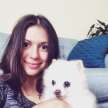Challenge Yourself To Read One Popular Science Book a Month
How just 1 year and 12 books can change the way you think.
Popular science books are unlike any other books out there. Both educational and entertaining, a good popular science book is a perfect mix of everything that makes reading worthwhile and enjoyable. And while reading only pop-science books might seem like overkill, at least one book a month can make a world of difference.
Feel free to read these amazing books in any order or save an entire list to have a new book ready every month. Join me in this little challenge and let's see how in just one year, the way we think and perceive things will transform.
❄️ January
The Joy of x: A Guided Tour of Math, from One to Infinity by Steven H. Strogatz
"Things that seem hopelessly random and unpredictable when viewed in isolation often turn out to be lawful and predictable when viewed in aggregate."
Start your year on a good note with a book that introduces the greatest ideas of math, showing how it connects to literature, philosophy, law, medicine, art, business, and even pop culture. Even if you are not good at math, don't skip it. It's a delightful book that explains everything in such a way that anyone who understands basic math and can visualize things can enjoy it.
⛄ February
Sex At Dawn: The Prehistoric Origins of Modern Sexuality by Christopher Ryan
"Societies in which women have lots of autonomy and authority tend to be decidedly male-friendly, relaxed, tolerant, and plenty sexy. Got that, fellas?"
February is frequently associated with love. Why not indulge in reading a popular science book about sexuality and romantic relationships?
🍃 March
Sapiens: A Brief History of Humankind by Yuval Noah Harari
"You could never convince a monkey to give you a banana by promising him limitless bananas after death in monkey heaven."
Let's fight the temptation to think that all history books are boring together; some of them are not. Sapiens, a book about other human species that used to inhabit the earth, is a great example.
🌱 April
What We Believe But Cannot Prove: Today's Leading Thinkers on Science in the Age of Certainty by John Brockman
This book reminds me of an exciting Quora thread where the world's leading thinkers write about things they believe in but can't prove. Great idea, but the book itself feels too short. Nevertheless, it contains some amazing essays from top scientists on topics such as consciousness, evolutions, the human mind, quantum mechanics, astronomy, time, and more.
🌸 May
The Tell-Tale Brain: A Neuroscientist's Quest for What Makes Us Human by V.S. Ramachandran
"Indeed, the line between perceiving and hallucinating is not as crisp as we like to think. In a sense, when we look at the world, we are hallucinating all the time. One could almost regard perception as the act of choosing the one hallucination that best fits the incoming data."
If you decide to read only one book from this list, please pick this one. This brilliant book deserves way more readers.
🌼 June
How to Change Your Mind: What the New Science of Psychedelics Teaches Us About Consciousness, Dying, Addiction, Depression, and Transcendence by Michael Pollan
"Our task in life consists precisely in a form of letting go of fear and expectations, an attempt to purely give oneself to the impact of the present."
The lengthy title of this book perfectly explains what Michael Pollan is going to talk about in his book. The way the author talks about psychedelics and their potential might be eye-opening for a lot of people.
🌻 July
Astrophysics for People in a Hurry by Neil deGrasse Tyson
"The universe is under no obligation to make sense to you."
How much do you know about astrophysics? Yeah, me too. But if you pick up this short book, be ready for a lot of new facts, ideas, and theories. By the way, there is a similar edition of this book but for pre-teens, in case your kids also want to learn a thing or two about astrophysics.
💐 August
The Man Who Mistook His Wife for a Hat and Other Clinical Tales by Oliver Sacks
"Each of us is a singular narrative, which is constructed, continually, unconsciously, by, through, and in us - through our perceptions, our feelings, our thoughts, our actions; and, not least, our discourse, our spoken narrations. Biologically, physiologically, we are not so different from each other; historically, as narratives - we are each of us unique."
People who lost their sense of self suffer the most simply because they don't realize that they've lost something. In this book, Dr. Oliver Sacks, a British neurologist, naturalist, historian of science, and writer, tells some truly amazing stories that explain a lot about the way we think and behave.
⛅ September
Seven and a Half Lessons About the Brain by Lisa Feldman Barrett
"Spend five minutes per day deliberately considering the issue from the perspective of those you disagree with, not to have an argument with them in your head, but to understand how someone who's just as smart as you can believe the opposite of what you do."
A brilliant read from the author of How Emotions Are Made, this short and sweet book is full of myth-busting facts and curious insights.
🍂 October
Why We Dream: The Transformative Power of Our Nightly Journey by Alice Robb
Dreams are such an exciting yet unexplored topic. Why We Dream is a well-researched book aimed at revealing the new science of dreams.
🌧️ November
The Age of Insight: The Quest to Understand the Unconscious in Art, Mind, and Brain from Vienna 1900 to the Present by Eric R. Kandel
"The biological function of art, in other words, is that of a rehearsal, a training in mental gymnastics which increases our tolerance of the unexpected."
This book is a fascinating combination of various topics like art, psychology, neurology, art criticism, and art history. I encourage you to check out other books by Eric Kandel as well; every book he writes is a real masterpiece.
☃️ December
The God Delusion by Richard Dawkins
"We are all atheists about most of the gods that humanity has ever believed in. Some of us just go one god further."
Even if you believe in God, nobody is trying to convince you that you are wrong. The God Delusion is just an amazing book that introduces a lot of ideas, concepts, and insight that any reader can appreciate.
A controversial book from the world's most prominent atheist is a must-read not because it asserts the irrationality of belief in God but because it pushes readers to think differently. And this is the ultimate goal of any good popular science book, isn't it?
---
This article was originally published on Medium.
About the Creator
Valeriia Muradian
I'm a software developer from Ukraine who lives in Miami and loves writing about nerdy stuff.







Comments
There are no comments for this story
Be the first to respond and start the conversation.